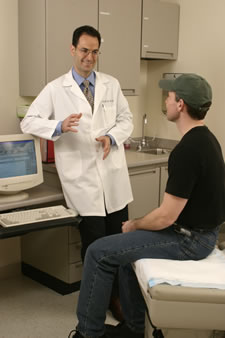While doctors and practitioners are preparing for the switch to computerized data, many health systems are not yet capable of handling more sophisticated records. That’s according to research published in the Journal of the American Medical Association, which concluded software limitations would prove a continuing barrier.
‘Big data’, which could see details as complex as patients’ DNA being shared electronically, could save health providers millions in addition to streamlining processes.
But with research showing the systems technology still lacks the necessary sophistication, it will remain a challenge for healthcare providers to fully embrace the digitization of medical records, and to benefit from the advantages it could bring.
Electronic health records are individual digital records which contain coded information about patients and their medical history. EHRs are designed to be shared between systems so that healthcare providers can link up and provide holistic care with access to a constant and up-to-date medical record.
Diagnostic tests, for example, are one area where EHRs are already lacking. While non-essential in most cases, the preference would be for doctors to have access to past diagnostic data to choose the best treatment plan, and to have a fuller understanding of each patient’s needs.
But Justin Starren, a leading academic in health information technology, suggested the report was missing the main point of EHRs in practice. “EHRs are not designed to store large blocks of data that do not require rapid access, nor are they currently capable of integrating genomics clinical decision support.”
EHRs were launched to enable doctors, nurses and other professionals to quickly share information about patients in an electronic way. According to Starren, the idea of sharing more complex, large-scale medical data is a much newer concept, and a purpose for which EHRs were never envisaged.
Epic consultants are now becoming increasingly sophisticated in their ability to manage costs and work with third-party vendors, and they are helping health care providers to develop more sophisticated in-house expertise. But while expertise is increasing, there are some notable historic failures, such as the UK’s NHS system, which are not being forgotten.
The British NHS example fell apart, and the lack of a formalized data exchange meant the system wasn’t fit for purpose. Perhaps in light of this case, it’s not just the technology that lacks the sophistication to handle the need for more data.
The scope for digitized data sharing through some more advanced form of EHR points to a bright future for healthcare IT. It is clear that these developments can have a tangible effect on patient care – at every stage of the care chain.
It seems obvious that if the technology is to meet the needs of doctors and medical professionals going forward, it will have to develop to truly embrace big data.

